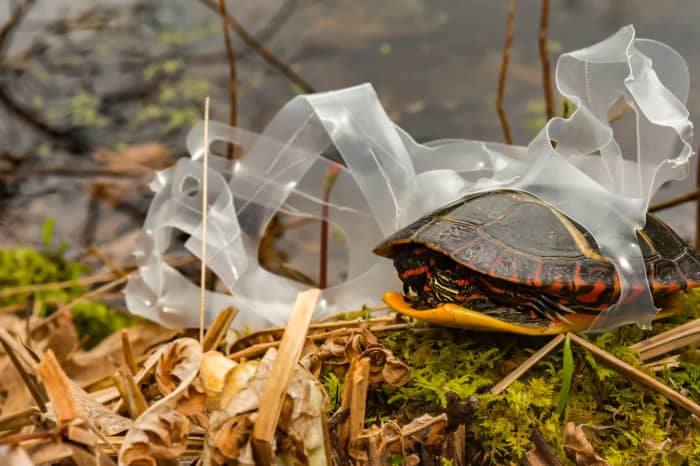This post was originally published on this site
Molson Coors Beverage Co.’s Coors Light will eliminate plastic rings from packaging globally, which positions it as the largest beer brand in North America to move away from the easy-carrying 6-pack device that historically has hurt the planet.
Molson Coors will invest $85 million in the effort, enabling Coors Light to transition to fully recyclable and sustainably-sourced cardboard-wrap carriers later this year, the company said Tuesday. Its stock
TAP,
has climbed more than 10% in the past year.
The move will save 400,000 pounds of single-use plastic annually, the company predicts. Coors also brought the first recyclable aluminum can to market in the 1950s, a technology that it did not patent in order to encourage broader use.
“We believe that buying beer shouldn’t mean buying plastic,” said Marcelo Pascoa, vice president of marketing for the Coors family of brands.
Molson Coors is playing a bit of catchup to moves by European brewers, which have been trying to cut out, or at least reduce, plastic for a few years.
Brewers and other drinks makers are recognizing that more of their customers care about how plastic is sourced and where it ends up after use. In the 1980s, that often meant a six-pack ring around the neck or in the stomach of a turtle or fish.

An Eastern Painted Turtle entangled in a plastic six pack drink holder.
Getty Images/iStockphoto
In fact, since 1994, the EPA has mandated that all ring carriers sold in the U.S. must be degradable. Plastic-ring makers — Illinois Tool Works
ITW,
and its Hi-Cone division is a big one — meet this standard by making their rings photodegradable, which means they break down in light. That can take three to four months.
While regulations make it less likely animals will be entangled by the rings, it still leaves the possibility that they might consume the smaller byproducts that are formed as the plastic breaks down, the National Geographic foundation stresses. EPA regulations say the resulting plastic fragments can range from particles too small to see with the naked eye, aka so-called micro-plastics, to pieces several centimeters across.
Coors Light will debut the new packaging at a New York pop-up event, which accompanies a marketing short film “Plastic-Free Future Mart by Coors Light,” about the mega brewer’s vision for a world with no single-use plastics.
In Europe, Diageo
DEO,
for example, made a switch away from plastics last year in a program removing ring carriers and shrink wrapping on premium brands such as Guinness, Harp and Smithwicks, which instead will use 100% recyclable and biodegradable cardboard-based pack binders. Guinness also recently announced its plans to cut the carbon footprint of its barley production.
And Heineken announced plans to introduce a novel pack topper to replace conventional plastic rings, brewing consultant First Key said in a summary of plastics efforts.
Some craft brewers have made their own mark with creative packaging. One, Florida-based Saltwater Brewery’s edible six-pack holder first introduced a few years back, is made using brewing byproducts like barley and wheat remnants. So, if the rings end up in the ocean, they will disintegrate.
And this year, Coca-Cola
KO,
made a fresh commitment to reusing bottles that left at least one pro-sustainable-investing group declaring the pledge “industry-leading.”
The world is producing twice as much plastic waste as it was just 20 years ago, with the bulk of it ending up in landfills, incinerated in open pits or making its way into the environment, from ocean habitats to our own respiratory and digestive systems, a report out last month said.
Only about 9% of the world’s plastic is successfully recycled, according to the Organization of Economic Cooperation and Development (OECD). The Paris-based group, with 38 member-countries, issued its report ahead of United Nations’ talks on a global plastic-reduction treaty.


